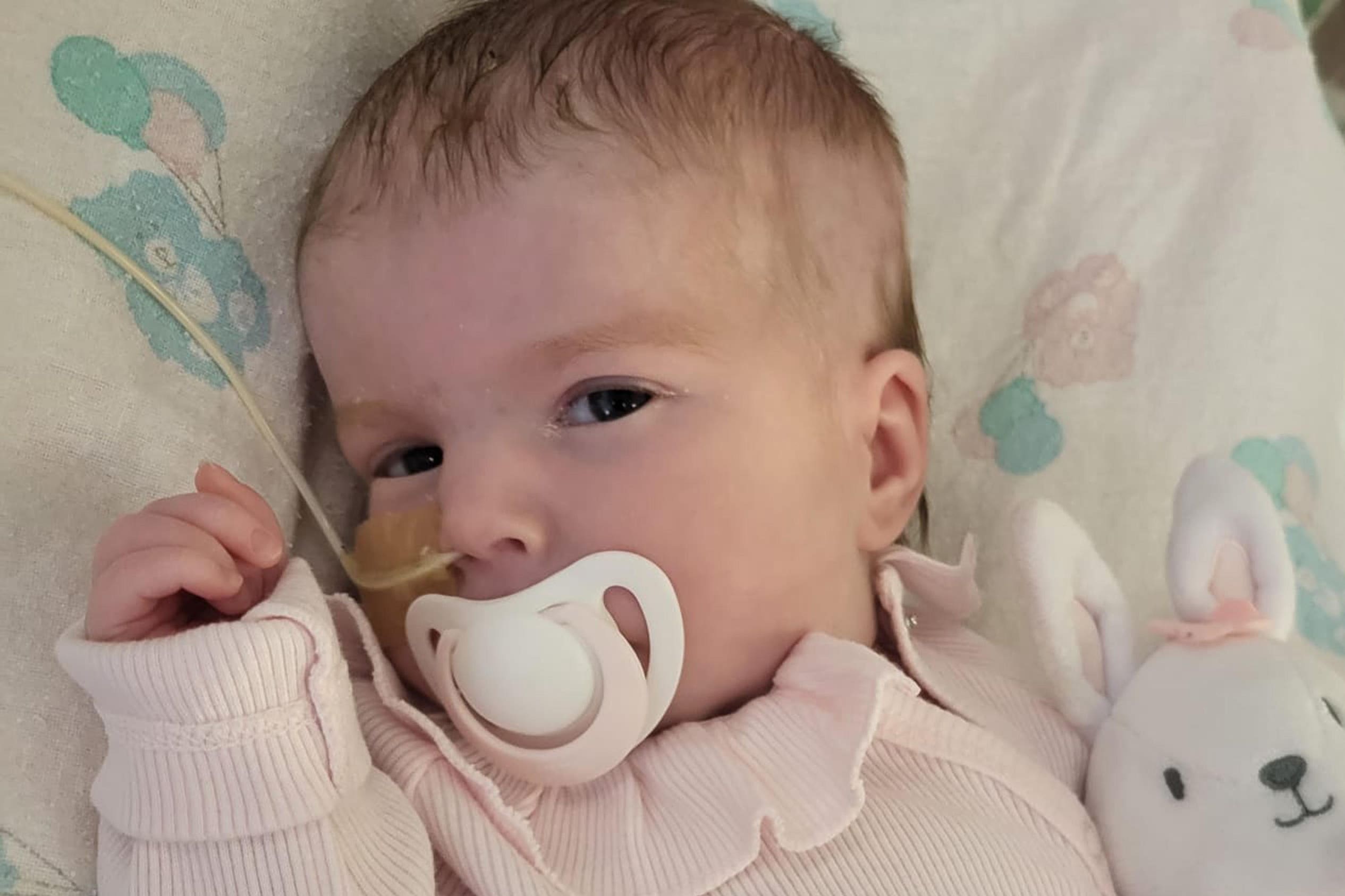Critically-ill baby’s family plan appeal after failing in Italy hospital bid
A judge who decided that doctors in England can lawfully limit Indi Gregory’s life-support treatment has now blocked a transfer to Rome.

The parents of a critically-ill baby have said they plan to appeal after losing another round of a life-support treatment fight.
A High Court judge on Thursday refused to allow Indi Gregory’s parents to move her to a hospital in Rome.
Mr Justice Peel concluded, in a written ruling, that a transfer to Italy would not be in eight-month-old Indi’s best interests.
He had earlier ruled that doctors treating Indi at the Queen’s Medical Centre in Nottingham could lawfully limit treatment.
Indi’s parents, Dean Gregory and Claire Staniforth, failed to persuade Court of Appeal judges in London, and judges at the European Court of Human Rights (ECHR) in Strasbourg, France, to overturn that decision.
But the couple, who are both in their 30s and from Ilkeston in Derbyshire, say an Italian hospital has now offered to treat Indi.
Lawyers representing Indi’s parents asked Mr Justice Peel earlier this week to allow her to be moved to Italy, but on Thursday the judge dismissed their application.
I am satisfied that the proposal for a transfer to Rome would not be in (Indi's) best interests
“I am satisfied that the proposal for a transfer to Rome would not be in (Indi’s) best interests,” he said in his ruling.
“In my judgment, there is no material change of circumstances, or other compelling reason, to justify reconsideration of my original order. The application is dismissed.”
Bosses at the Queen’s Medical Centre had argued that Indi’s parents’ application should be dismissed.
Indi’s parents are being supported by campaign group the Christian Legal Centre.
A spokesman for the centre said they aim to appeal.
Mr Justice Peel has been considering evidence at private hearings in the Family Division of the High Court in London.
But he has allowed journalists to attend and said Indi could be identified in reports.
The judge was told that the Bambino Gesu Paediatric Hospital in Rome has agreed to accept the little girl.
Lawyers representing Indi’s parents said there has been a “material” change of circumstances since the judge ruled that doctors could limit treatment, and said Indi has a chance of a “longer life”.
Judges have heard that Indi, who was born on February 24, has mitochondrial disease – a genetic condition that saps energy.
Specialists say Indi is dying and bosses at the hospital where she is being cared for asked for a ruling that doctors could lawfully limit treatment.
Medics say the treatment Indi receives causes pain and is futile.
Her parents disagree and want treatment to continue.
A Christian Legal Centre spokesman said Indi’s father “immediately instructed lawyers” to appeal.
The expert medical opinions presented a way of treating Indi which they say is likely to save her life and make her better, yet the trust has angrily refused to consider it. Mr Justice Peel has simply rubber-stamped the trust's position
Mr Gregory said, in a statement issued through the Christian Legal Centre, that he was “horrified” by the ruling.
He said Indi’s family wants to accept the Italian hospital’s offer “because the only alternative” offered by the Queen’s Medical Centre’s governing trust is “Indi’s death”.
“The expert medical opinions presented a way of treating Indi which they say is likely to save her life and make her better, yet the trust has angrily refused to consider it,” he said.
“Mr Justice Peel has simply rubber-stamped the trust’s position.
“Claire and I want to give our daughter every chance to survive and to improve, and it is very disturbing that Indi’s current treating clinicians will not co-operate with the air ambulance specialists.
“We have been given a real chance by the Bambino Gesu Paediatric Hospital which we want to take for our daughter.
Even if the transfer to Italy involves some risk, the only alternative we have been offered in the UK is to go along with Indi’s death
“Even if the transfer to Italy involves some risk, the only alternative we have been offered in the UK is to go along with Indi’s death.
“There is nothing to lose for us or for Indi.
“The offer from Italy is the only offer of treatment that we have, and, as Indi’s parents, we are prepared to take a risk to make that happen.
“Given that the medical evidence suggests she has a reasonable chance to survive and to improve, we believe it is in her best interests to be given that chance.
“We continue to be horrified at the trust and UK courts’ refusal to give her that chance.”
